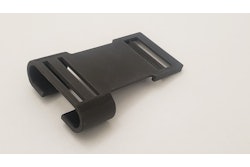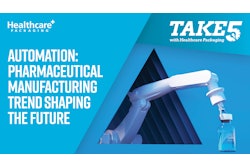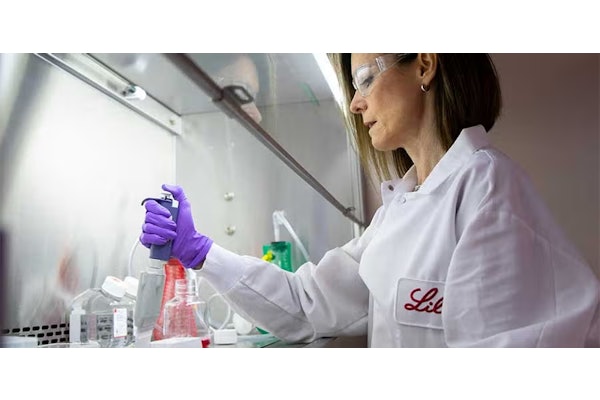Quick hits:
- Multivariate analytics, a type of analysis enabled by artificial intelligence, can help identify and troubleshoot process and product quality issues, increase yields, and reduce off-spec product.
- Find out how artificial intelligence-driven software helped a pharma company stop having to replace a mechanical seal in its bead mill every eight batches to prevent batch loss.
- Learn how another pharma company was able to get more than a month’s notice of impending failure in its purified water system equipment to avoid unplanned downtime.
- Article: How and Why Pharmaceutical Manufacturers Are Applying Artificial Intelligence
- Video: The Artificial Intelligence Explosion in Industrial Automation
 | Read the transcript below: |
Hello and welcome to Take Five with Automation World. I’m David Greenfield, Director of Content, and in this episode we’ll be looking at real world applications of artificial intelligence in industry—specifically the pharmaceutical industry—to better understand how this technology can be applied to improve industrial production operations.
For most users of industrial automation technologies, artificial intelligence is not something you’ll directly interact with. Instead, it’s used inside various systems to process data at a scale, speed, granularity, and preciseness that can’t be matched by humans.
That’s why the application of artificial intelligence is starting to have a significant impact on automation technologies used across industry—most notably with machine vision and analytics. And some of the more impactful applications of AI are happening in the pharmaceutical industries.
And it shouldn’t be too surprising that the pharmaceutical industries are looking to optimize production with artificial intelligence, considering that single batch values for some drugs can exceed three million dollars.
Two areas of artificial intelligence applications focused on by pharmaceutical companies include asset performance management using advanced analytics to create manufacturing efficiencies…and predictive maintenance systems to analyze failure patterns and provide anomaly alerts and advance warnings of pending equipment failures.
Richard Porter, global director of pharmaceuticals at AspenTech, a supplier of industrial software technologies, says that opportunities to reduce manufacturing costs exist across all stages of the product lifecycle. And advanced analytics can reveal those opportunities, allowing companies to take informed actions to save money. Whether using multivariate analytics to identify process degradation and its impact on quality…or predicting final product quality to reduce lab testing lag times, these techniques offer pharmaceutical companies a competitive advantage.
Porter also noted that multivariate analytics software can be applied to existing data sources in pharmaceutical manufacturing facilities—not just to batches in process—to analyze and continually monitor how discrepancies in material properties, variations in procedures, and process anomalies such as sensor drift and changing environmental conditions impact the final product.
He said: These tools can help identify and troubleshoot process and product quality issues, increase yields, and reduce off-spec product.
Specific types of equipment that artificial intelligence-driven predictive maintenance systems in the pharma industry have been proven to effectively protect include primary equipment such as air and centrifugal compressors, boilers, pumps, and water purification systems. Artificial intelligence can also be applied to secondary production and packaging equipment such as autoclaves, bead mills, centrifuges, chillers, conveyors, granulators, fluid bed and plate dryers, roller and tablet presses, and spray heads.
Porter said one pharmaceutical company AspenTech worked with was replacing the mechanical seal in its bead mill every eight batches to prevent batch loss—at a cost of twenty-five thousand dollars per replacement. By adopting Aspen’s Mtell software, which uses artificial intelligence to recognize patterns that can lead to equipment failures, the company was able to reduce supply chain disruptions from seal replacements and cut lifecycle maintenance costs by 60 percent. In addition, the company reduced capital expenditures and associated lifecycle maintenance costs by 50 percent.
Another pharmaceutical application Porter cited revolved around failures of a purified water system. These failures shut down entire sections of the plant for as long as a week, resulting in the loss of up to 15 batches.
Using Aspen’s Mtell software to predict pending breakdowns provided the company with thirty five days advance warning of a deionizer failure, allowing staff time to schedule maintenance and prevent production losses.
And looking beyond the pharma industry, if you’re interested in how artificial intelligence is being applied in supply chain, workforce training, and quality control, watch an earlier Take Five with Automation World video via the URL shown here.
So, I hope you enjoyed this Take Five with Automation World episode. And please keep watching this space for new episodes to keep you on top of what’s happening in the world of industrial automation.





















